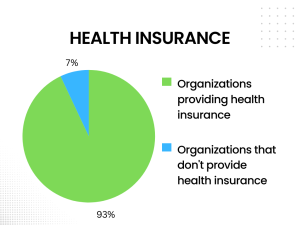The Financial Strain of Hosting the Olympics and the Role of Athlete Advocacy: Lessons for Nonprofit Professionals
The Olympic Games symbolize global unity and athletic excellence, yet behind the scenes, the financial and emotional costs can be overwhelming. Cities vying to host the Olympics face significant economic burdens, and athletes contend with enormous pressures. Simone Biles’s recent experiences highlight these dual challenges and underscore the importance of athlete advocacy in addressing both financial and mental health considerations. Nonprofit professionals can learn valuable lessons from these dynamics, especially in financial management and mental health advocacy.
The Economic Burden of Hosting the Olympics
Hosting the Olympics often involves substantial costs that exceed initial estimates. For example, the Rio de Janeiro 2016 Olympics cost over $20 billion, while London spent $14.6 billion for the 2012 Games (Wills, 2024). Beijing’s 2008 Olympics cost approximately $42 billion (Wills, 2024), and Athens faced around $15 billion in expenses for the 2004 Games (ProCon.org, 2024). These expenses cover building new sports venues, upgrading infrastructure, and ensuring security.
Expected economic benefits, such as increased tourism and improved infrastructure, can sometimes fail to materialize. While cities like Barcelona saw significant urban development, others, such as Athens, struggled with financial fallout and underutilized facilities (ProCon.org, 2024). The disparity between anticipated and actual economic impact raises important questions about the long-term value of hosting the Games.
For nonprofit professionals, the lesson is clear: careful financial planning and realistic goal-setting are crucial. Overestimating benefits or underestimating costs can lead to significant financial strain. Setting SMART goals (Specific, Measurable, Achievable, Relevant, Time-bound) can ensure financial expectations align with organizational capacities and strategic aims (Nonprofit Learning Lab, 2023).
Simone Biles: Championing Mental Health Awareness
Amid the financial complexities of hosting the Olympics, athletes like Simone Biles have highlighted crucial mental health issues. Biles’s decision to withdraw from several events during the Tokyo 2020 Olympics due to mental health concerns marked a significant moment in the conversation about athlete well-being. Her actions, alongside those of other athletes like Naomi Osaka, underscored the unique psychological pressures of the Games (Katwala, 2021).
The Tokyo Olympics posed unprecedented challenges, exacerbated by the COVID-19 pandemic. Athletes faced isolation from their usual support systems, stringent health protocols, and constant scrutiny, intensifying their stress and anxiety (Katwala, 2021). Biles acknowledged the difficulty of navigating these pressures and emphasized the importance of utilizing support systems and being open about mental health struggles (Bregman, 2021).
Balancing Economics and Mental Health
The financial strain of hosting the Olympics and the mental health challenges faced by athletes are intertwined. The immense pressure on host cities to deliver a successful event often prioritizes economic outcomes over the well-being of athletes, leading to inadequate support systems and exacerbating the psychological toll on competitors.
Nonprofit professionals can draw parallels to their work, where financial pressures and the well-being of staff and beneficiaries must be balanced. Biles’s advocacy highlights the need for a holistic approach to planning and support. Just as she has prompted discussions about improving support systems for athletes, nonprofit leaders can advocate for better mental health resources within their organizations and communities.
Prioritizing Mental Health in Nonprofits
According to the National Alliance on Mental Illness, 1 in 5 U.S. adults experiences mental illness. Nonprofit leaders at five national organizations have called on CEOs to prioritize mental health by training managers, increasing flexible work options, re-examining health insurance policies, listening to employee feedback, and taking a critical look at organizational policies through a lens of diversity, equity, and inclusion (Nonprofit Leadership Center, 2024).
Conclusion
The financial and emotional costs of hosting the Olympic Games are significant and complex. Simone Biles’s experiences underscore the importance of addressing both the economic impact on host cities and the mental health of athletes. By integrating these considerations into the planning and execution of the Games, the Olympic movement can value both financial viability and the well-being of those who make the Games possible.
For nonprofit professionals, these lessons are invaluable. Prioritizing sustainable financial practices and advocating for mental health can lead to a more balanced and effective organization. By learning from the challenges and successes of the Olympic Games, nonprofit leaders can better navigate the complex terrain of sustainable operations.
References
Bregman, S. (2021, October 10). Exclusive! Simone Biles on sparking mental health conversation: “We’re going through it together.” Olympics.com. Retrieved from Olympics.com
Katwala, A. (2021, July 29). Simone Biles and the Unprecedented Olympic Pressure. WIRED UK. Retrieved from Wired
Nonprofit Leadership Center. (2024). Mental Health Resources for Nonprofit Professionals. Retrieved from Nonprofit Leadership Center
ProCon.org. (2024). Hosting the Olympic Games – Top 3 Pros and Cons. Retrieved from ProCon.org
Wills, J. (2024). The Economic Impact of Hosting the Olympics. Retrieved from Investopedia
Nonprofit Learning Lab. (2023, May 30). 17 SMART Goals For Nonprofits and How to Set Your Own. Nonprofit Learning Lab. Retrieved from Nonprofit Learning Lab
 Health Coverage: An overwhelming 93% of surveyed organizations provide
Health Coverage: An overwhelming 93% of surveyed organizations provide